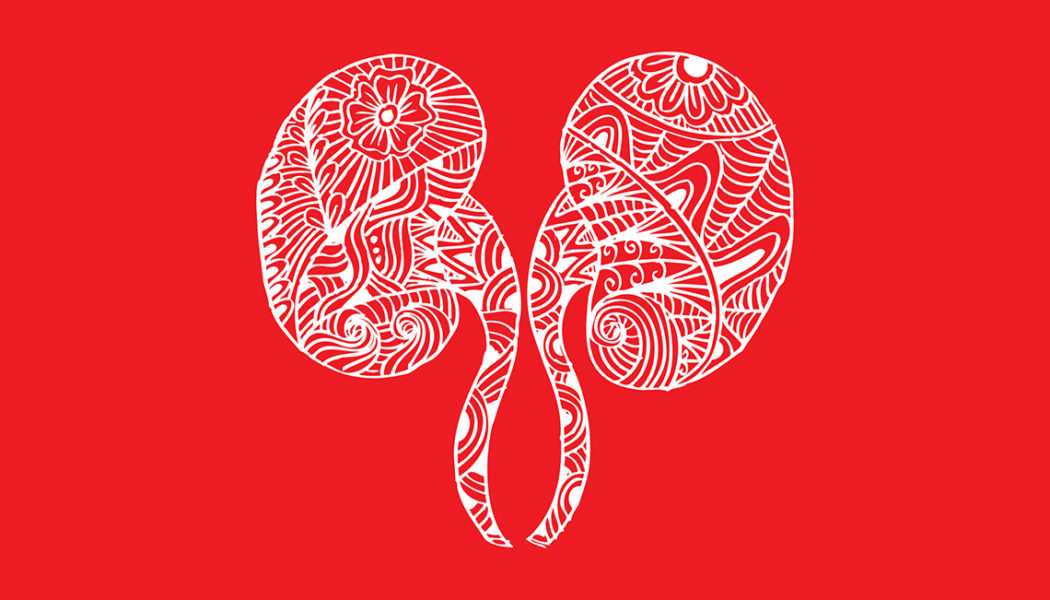
Kidney disease is the fastest growing noncommunicable disease in the United States, according to the American Kidney Fund. Kidney disease affects 37 million Americans, or 15 percent of all adults. It’s often called the “silent epidemic,” because signs and symptoms are usually nonexistent until the kidneys are already damaged. Once kidneys fail, people need lifelong dialysis or a kidney transplant. With good management and new treatments, kidney disease can be prevented and managed. Here are nine ways to keep your kidneys healthy and slow down progression of the disease.
1. Know what puts you at risk for kidney disease
Diabetes, or high levels of blood sugar in the body, is the number one risk factor for kidney disease. High blood pressure is also strongly associated with kidney disease. Other risks include heart disease, obesity, family history, past kidney damage and aging. African Americans, Hispanics and Native Americans are at higher risk than white people. As we age, our kidneys lose some of their function.
9 signs of kidney disease
When your kidneys aren’t functioning properly, you may experience the following.
1. Fatigue, lack of energy, trouble concentrating
2. Trouble sleeping
3. Dry and itchy skin
4. Need to urinate more frequently
6. Puffiness around the eyes
7. Ankle and foot swelling
8. Lack of appetite
9. Muscle cramping
Physical warning signs for kidney disease are very rare. Most kidney disease is detected through blood work. However, if you have persistent foam or blood in your urine, this may indicate a kidney disorder. People passing kidney stones may experience sharp pain that comes in waves or spreads to the groin area. The National Kidney Foundation says stones increase your risk of kidney disease.
Michelle Josephson, M.D., a nephrologist and professor of medicine and surgery at the University of Chicago School of Medicine, says you should be sure to discuss the effect medications you take may have on your kidneys. Certain immunologic drugs, nonsteroidal anti-inflammatories, some antibiotics and other medications can increase your risk for kidney disease.
2. Talk to your doctor about prevention and treatment
If you have diabetes, prediabetes, high blood pressure, family members with kidney disease or other risk factors, ask your doctor to check your kidney function using simple blood and urine tests. Because kidney disease is usually silent, tests are the only way to know if you have damage. The results will tell you how well your kidneys are working.
More specifically, a blood test will tell you how well your kidneys filter blood by measuring creatinine — a protein produced by muscles that is usually filtered and excreted in urine. When kidneys aren’t working properly, the level of creatinine builds up in the bloodstream. A urine test can detect whether protein is present that can pass into the urine when kidneys are damaged.
Your primary care physician or provider should work with you to monitor and control your blood sugar, blood pressure and weight and to help you make healthy lifestyle changes. Depending upon the seriousness of damage, you may be referred to or choose to see a nephrologist, or kidney specialist.
3. Control your blood sugar
The number one cause of kidney failure is diabetes, which can cause damage to the cells and blood vessels in your kidneys.
Kidney disease is a common complication from diabetes. Susan Quaggin, M.D., chief of nephrology and hypertension at Northwestern University’s Feinberg School of Medicine, says diabetes accounts for almost half of all newly diagnosed kidney failure each year.
An A1C test measures your average blood sugar levels over the past three months. It’s important to know if you’re at risk for prediabetes or type 2 diabetes, as well as how well you’re managing diabetes.








